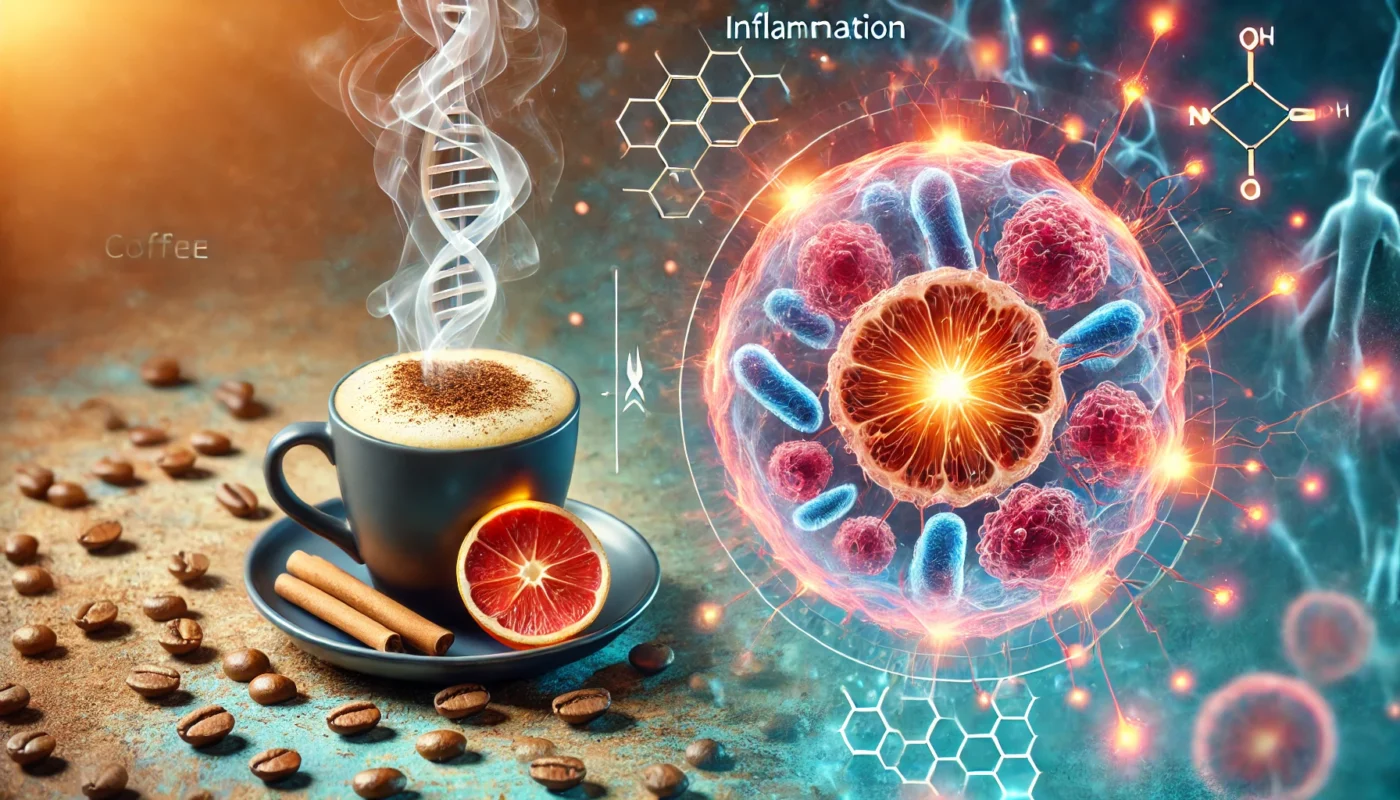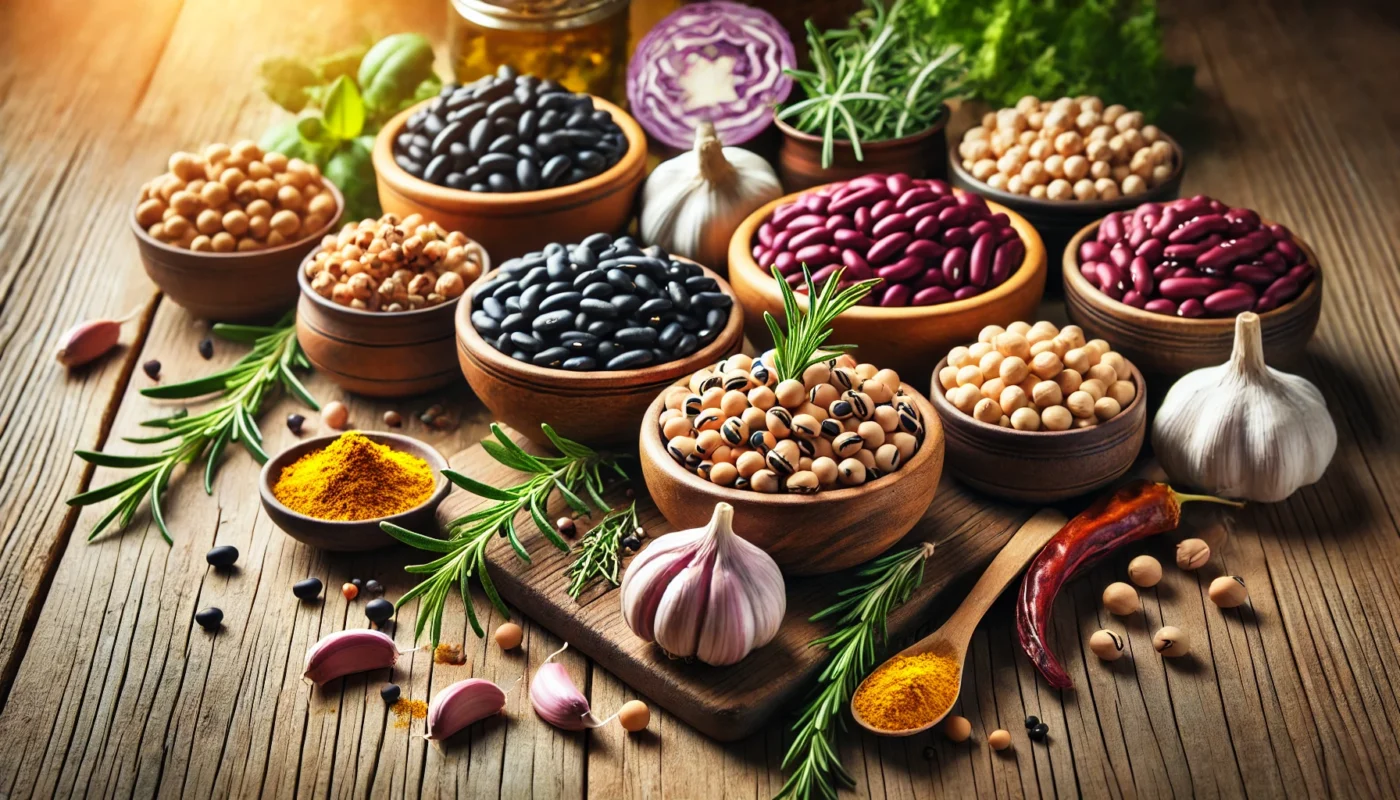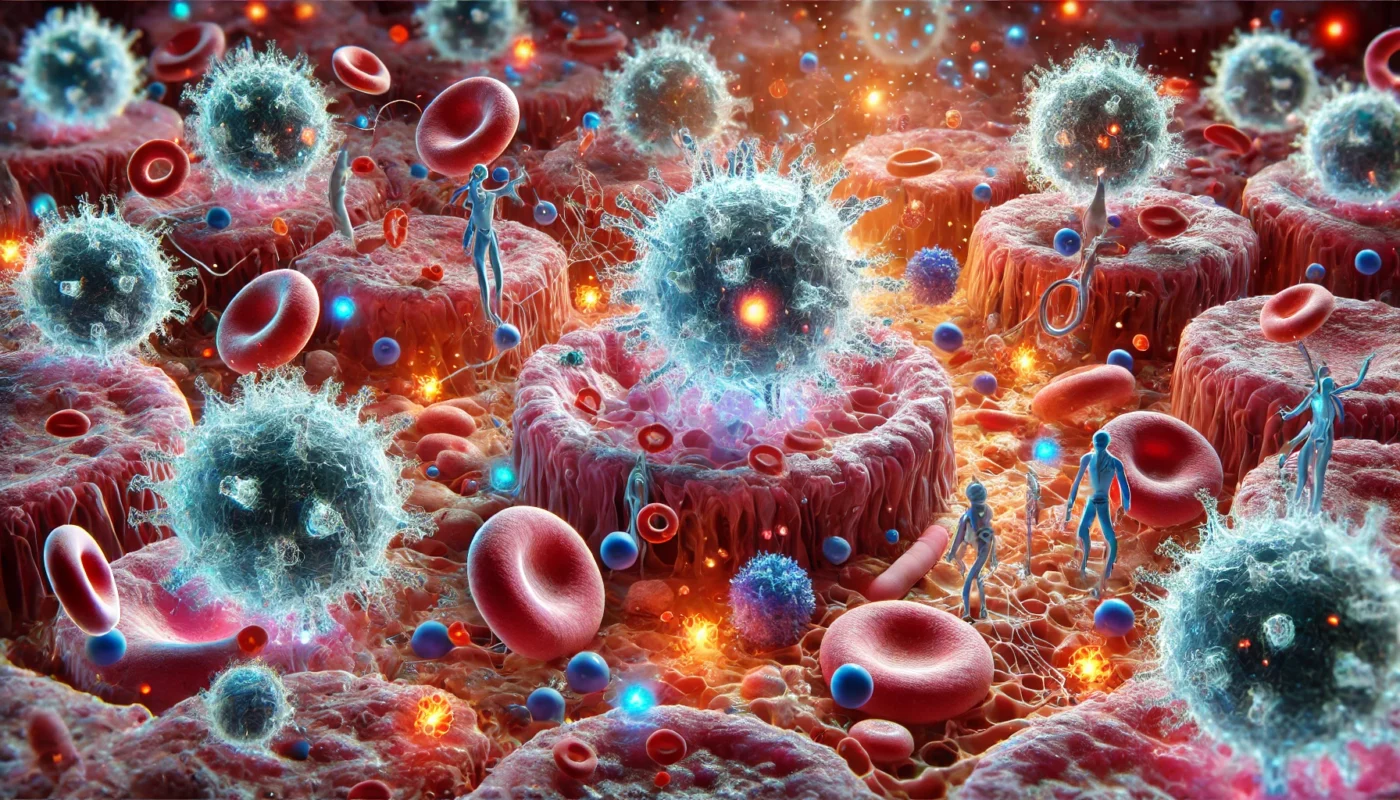For many of us, coffee is an indispensable part of our daily routine. It’s the morning pick-me-up, the afternoon energy booster, and sometimes, even an evening indulgence. Beyond its beloved role as a caffeine fix, coffee has been the subject of extensive research, particularly concerning its impact on inflammation. So, is coffee an anti-inflammatory food, or does it contribute to inflammation? Let’s delve into the science behind coffee and its effects on our body’s inflammatory processes.
Tag Archives: dietary choices
Inflammation is a natural biological response to injury or infection. It’s a critical part of the body’s defense mechanism, involving immune cells, blood vessels, and molecular mediators. However, when inflammation becomes chronic, it can lead to various health issues, including heart disease, arthritis, and certain cancers. Therefore, managing inflammation through diet has become an essential consideration in holistic health practices.
In the quest for optimal health and wellness, individuals are increasingly exploring holistic and alternative approaches to manage inflammation—a common underlying factor in numerous chronic health conditions. This exploration often leads to a closer look at dietary choices. One food that repeatedly comes into question in this context is the humble banana. Are bananas truly anti-inflammatory, or do they contribute to inflammation? Let’s delve into the science and explore the potential benefits of incorporating bananas into your diet.
In the realm of nutrition and wellness, the debate surrounding whether certain foods are inflammatory or anti-inflammatory often arises. Among these contentious foods are tomatoes and potatoes. Both are staples in many diets, yet they are frequently scrutinized for their potential inflammatory properties. So, do tomatoes and potatoes cause inflammation, or are they unfairly maligned? This article will explore the intricate relationship between these foods and inflammation, providing a comprehensive overview for those seeking clarity.
In the quest for optimal health and well-being, understanding the role of diet in inflammation is paramount. Dairy products, especially yogurt, have been the subject of much debate regarding their effects on inflammation. In this article, we delve into the intricate relationship between yogurt and inflammation, and provide insights that will aid fitness enthusiasts, health aficionados, and medical patients in making informed dietary choices.
Inflammation is the body’s natural defense mechanism, triggered by the immune system to protect against injury, infection, or toxins. It involves the release of inflammatory proteins and chemicals to facilitate healing. However, when inflammation persists, it can result in chronic conditions. The key to managing inflammation lies in balancing the body’s response, ensuring it is neither overactive nor underactive.
When the body detects an injury or harmful pathogen, the immune system springs into action. White blood cells are dispatched to the affected area, releasing chemicals that cause blood vessels to expand. This process allows more immune cells to reach the site, facilitating repair. However, this response must be carefully regulated, as an unchecked immune reaction can lead to tissue damage.
Inflammation involves a complex interplay of cellular and molecular events. Pro-inflammatory cytokines and chemokines are produced to recruit immune cells to the site of injury. Additionally, the complement system, a group of proteins in the blood, becomes activated to enhance the ability of antibodies and phagocytic cells to clear pathogens. Understanding these mechanisms is crucial for developing strategies to manage inflammation effectively.
MSG is a flavor enhancer derived from glutamic acid, a naturally occurring amino acid found in various foods like tomatoes and cheese. MSG imparts the umami taste, which is one of the five basic tastes alongside sweet, sour, bitter, and salty. It is commonly added to processed foods, fast foods, and Asian cuisine to enhance flavor.
In this article, we will explore the best alcoholic drinks for reducing inflammation and delve into whether beer is an inflammatory beverage. Let’s embark on this enlightening journey to understand how moderate alcohol consumption can fit into a health-conscious lifestyle.
In today’s fast-paced world, maintaining a healthy diet can often seem like an overwhelming task. With the demands of work, family, and social commitments, it can be challenging to find the time and energy to focus on what we eat. However, with the right knowledge and tools, adopting a nutritious diet becomes a manageable and rewarding endeavor. This article delves into the essential healthy diet foods you should incorporate into your daily routine, offering a blend of scientific insights and practical advice. By embracing these dietary changes, you can enhance your physical health, mental well-being, and overall quality of life.
In the realm of heart health, triglycerides often steal the spotlight alongside cholesterol. While cholesterol is infamous for its role in heart disease, elevated triglycerides can also be a significant risk factor. Fortunately, nature provides us with a bountiful remedy—walnuts. This article delves into the properties of walnuts and their potential as a natural solution for managing triglyceride levels.










